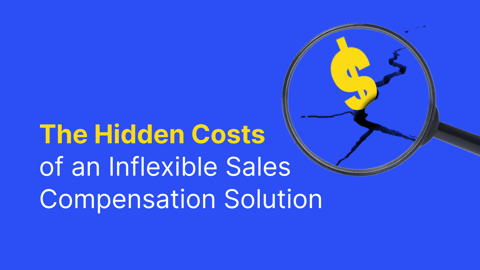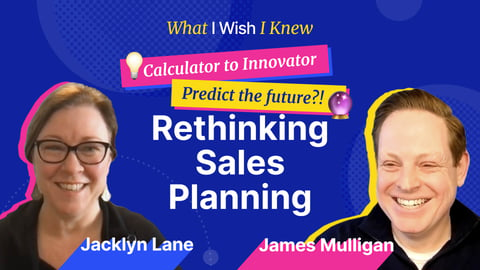Sellers tell me that they want to know how much they are going to get paid, when they are going to get paid, and how they can make the next deal payout out more. It's pretty simple. They are not coin-operated, please do not misunderstand. You can't put in a dollar investment and expect a standard return. They are highly motivated by winning. If their kid needs to go to university, that next deal may decide between sending them to the state university or the ivy league. The check cut for bonuses and variable pay makes a difference in people's lives.
The tricky part isn't understanding what the seller needs–it's how to deliver on the promises made from the compensation plan agreement.
If your company believes that success is using spreadsheets, or systems linked together between databases and payroll, you are working harder, not smarter. Those two paths are riddled with underpayments (which the seller will tell you about immediately) and overpayments (which you may not hear about at all.) Industry estimates put this error at about 4-7% of your budget for compensation payments. Moving to a sales performance management system reduces that error rate, and tends to pay for itself in the first year (and I have historical evidence to back that up.)
There are options in the market today. How do you choose the best sales performance management system that will fit your company? Consider you don't just want a solution for today, but you want a partner that will grow with you over the next decade.
What are the secrets to successful sales performance management?
- Organizational alignment: Make sure that there is an agreement among internal stakeholders to what needs to be improved, who is responsible, and who has the authority to oversee the success. You will need to find an executive champion that can make decisions, lead the team in a direction, and has the ear of leadership to gain support.
- Consider all your options: There must be 20 companies out there saying, "we do sales performance management." You might find that there are many ways to address aspects of your needs. By considering the alignment of your organization first, the needs of who you approach will match accordingly. Confirm your vendor is an expert and focused on the area of SPM.
- Get references: Verify the system can integrate, scale, and support other system investments you already own. Ask to speak with current clients that have similar needs to yours. Has the software scaled to the growth of that organization? Is the vendor responsive? Does the reference actually enjoy working with the vendor after the years they have partnered together?
- Build for TRUST: The investment you are making will be used by:
- front line managers to make teams successful
- sellers will need transparency into the transactional details as well as targeted quotas
- operators need to have the ability to make changes and consider calendars spanning year over year updates and
- next year's plan should have a powerful analytics tool for insight for plan designers.
Trust comes from deliveringon the promise of the planned agreement for everyone using the system.
If you are looking for independent guidance on which vendors you might consider:
- Download a complimentary copy of the 2020 Gartner Magic Quadrant for Sales Performance Management.
- Request a demonstrationof Varicent.
- Watch a customer webinar about the Varicent advantage.
The real secret to success in sales performance management is to realize there is a better path forward, and that you can take those first steps today.



